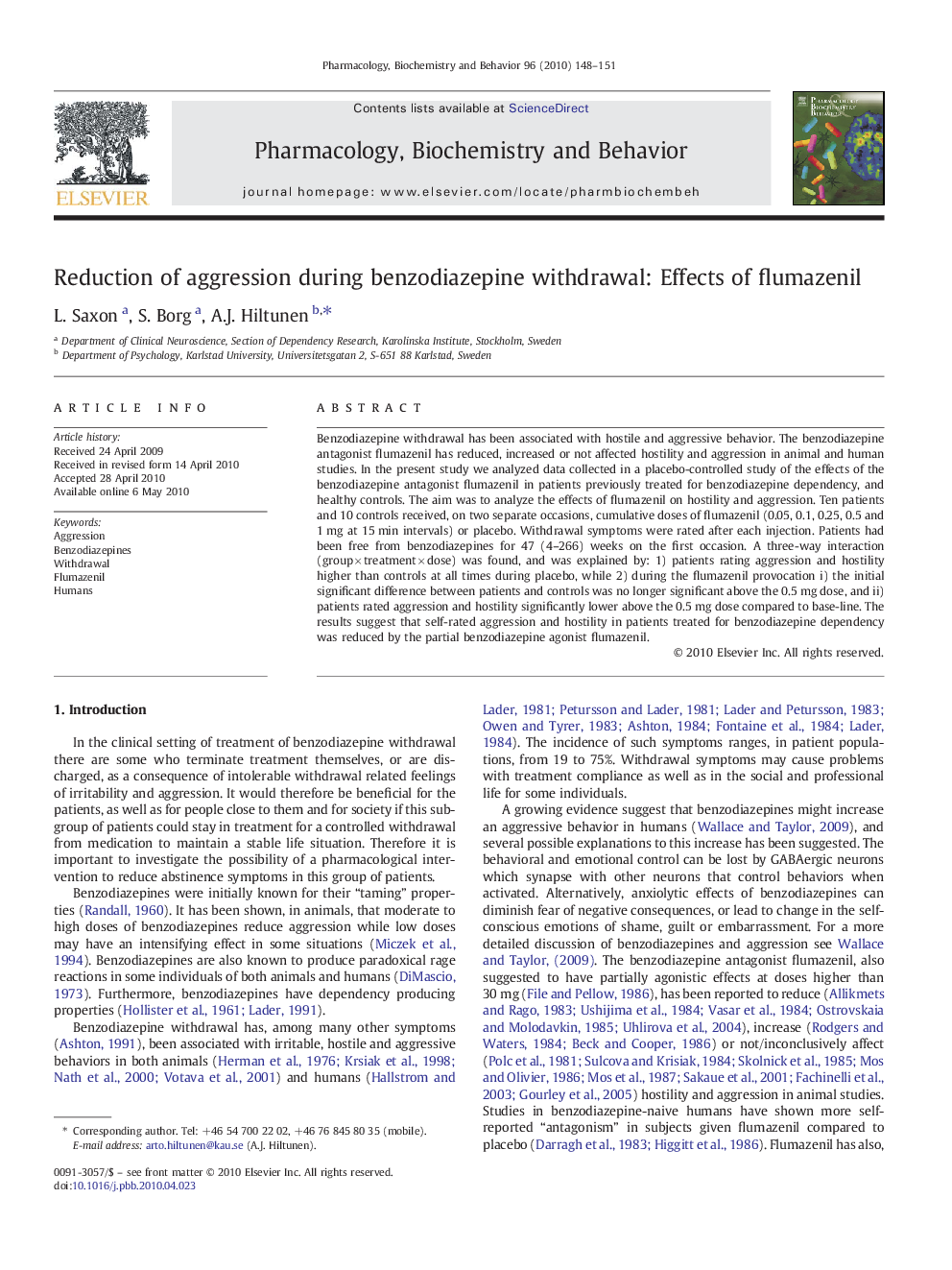| Article ID | Journal | Published Year | Pages | File Type |
|---|---|---|---|---|
| 2013391 | Pharmacology Biochemistry and Behavior | 2010 | 4 Pages |
Benzodiazepine withdrawal has been associated with hostile and aggressive behavior. The benzodiazepine antagonist flumazenil has reduced, increased or not affected hostility and aggression in animal and human studies. In the present study we analyzed data collected in a placebo-controlled study of the effects of the benzodiazepine antagonist flumazenil in patients previously treated for benzodiazepine dependency, and healthy controls. The aim was to analyze the effects of flumazenil on hostility and aggression. Ten patients and 10 controls received, on two separate occasions, cumulative doses of flumazenil (0.05, 0.1, 0.25, 0.5 and 1 mg at 15 min intervals) or placebo. Withdrawal symptoms were rated after each injection. Patients had been free from benzodiazepines for 47 (4–266) weeks on the first occasion. A three-way interaction (group × treatment × dose) was found, and was explained by: 1) patients rating aggression and hostility higher than controls at all times during placebo, while 2) during the flumazenil provocation i) the initial significant difference between patients and controls was no longer significant above the 0.5 mg dose, and ii) patients rated aggression and hostility significantly lower above the 0.5 mg dose compared to base-line. The results suggest that self-rated aggression and hostility in patients treated for benzodiazepine dependency was reduced by the partial benzodiazepine agonist flumazenil.
